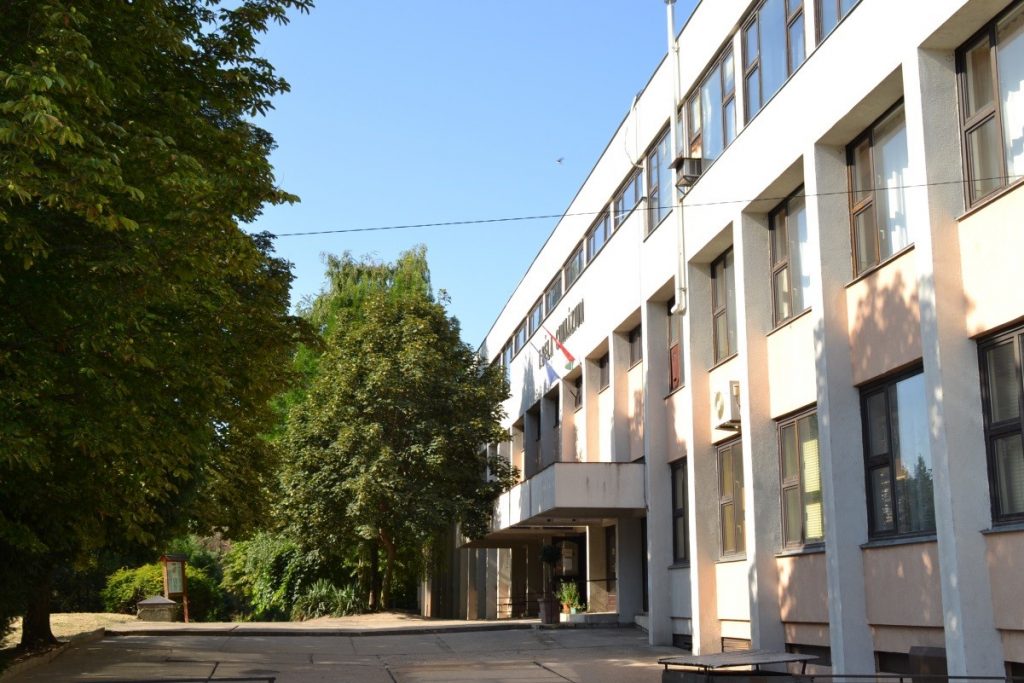Web: http://ibela.sulinet.hu/gimnazium/
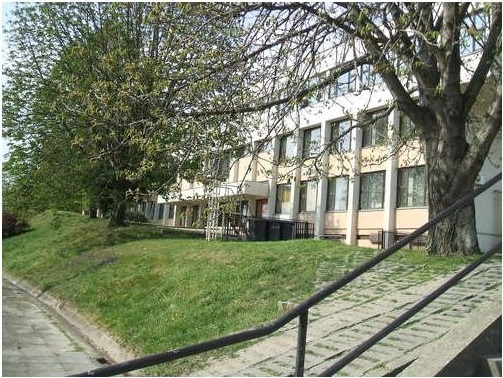
Our school was opened in 1967. It was named after King Béla I, who established a Benedictine Abbey in our town in 1061.
Our secondary school has been working in the present form as a Secondary Grammar School, Student Dormitory and Primary School since 2008.
The Secondary Grammar School and the Student Dormitory share a common building in Szekszárd (the seat of Tolna County), while the Primary School is located 16 km-s away, in the village of Szedres.
Our students come from Szekszárd and its surroundings mostly with middle-class family background.
Our school provides general certificate of secondary education that allows our students to apply for universities and colleges and continue their higher education studies.
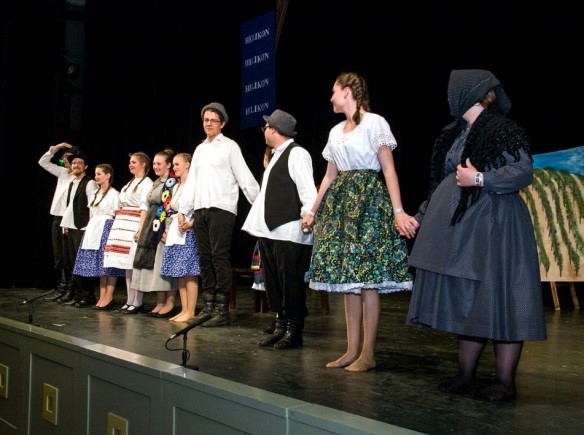
We organise 8 departments for students entering into the secondary education.
• Mathematics-Sciences
• Geo-Informatics
• English-Informatics
• English-German
• Humanities
• Sports
• Preparatory Year in Foreign Languages
• Programme for Students with poor social and financial background (János Arany Dormitory Programme)
Each year group has 3 classes (ABC), except the first year, as there are 3 classes (ABC) and an extra class with students of Preparatory Year in Foreign Languages + János Arany Dormitory Programme.
This academic year (2018/2019) we have 319 students and 40 teachers.
From the 3rd year of the secondary grammar school we provide the students free choice of subjects and teachers as well. It enables the students to learn their chosen subjects in higher number of class lessons and on a higher level.
Our school puts special emphasis on development of students’ learning skills and competences. We seek to provide our students the largest possible set of learning strategies to be successful in their studies and future career. We especially support development of critical thinking and creative problem solving skills.
Our work on skills development and talent management was awarded by the following titles:
Talent Management Secondary School (2008)
Excellent Accredited Talent Point (2013)
Mentoring Institute (2014)
European Talent Point (2015)
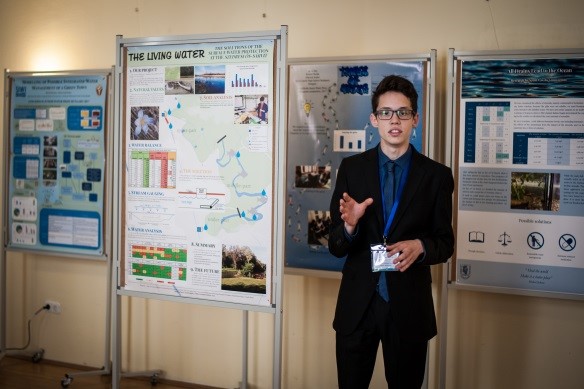
We participated in international and national projects that support these skill development activities, such as:
• Erasmus+ project R.A.R.E. (Read Aloud Rise Europe) – 2014-2016. The aim of this international project was to make extensive reading more popular among students.
• Comenius European Education with Information and Communication Technology project. The objectives of this project were to create partnership with other European secondary schools via personal interactions between teachers and students. Various products and outputs were produced during the project, including a journal ‘ARROW – Roots and wings’. It covered the customs and habits of the participant countries, teenager life and how these countries celebrate their national holidays.
• HEFOP pilot programme on Competency Based Teaching Project in several subjects, such as Hungarian Literature, Mathematics, Foreign Languages and ‘Realica’ (using IT in science education). After successful piloting we have integrated the results into our teaching practice. Gaining good experience in this project we have developed good practices and disseminated them for more than 50 organisations nationwide.
• Base School Programme of New Generation Center (Új Nemzedék Központ Bázisiskolai Program). The programme aimed at the development of soft skills and competencies (consciousness raising, learning strategies) that are useful in career building.
• The Neumann Project is an annual competition for primary and secondary school students both from Hungary and abroad. Candidates compete with their skills in different fields of computer studies. We generally have candidates from Slovakia, Serbia, Croatia, Romania and Hungary. From the most valuable projects 60 are chosen to be introduced in the final that is organised in our school. The final is broadcasted via internet-based live video streaming.
Finally, all the teachers, participating in ERASMUS+ LELLE2 project, are secondary grammar school teachers. They can communicate in English fluently and have several years of experience in teaching secondary school students. They teach Hungarian Grammar and Literature, History, IT and English. Innovation and entrepreneurship are the most important values of our teaching staff and they are engaged in introducing and applying new teaching methods. They regularly take part in teacher trainings and workshops to develop their own teaching methods. They integrate the newest teaching methods into their daily teaching activities and turn the latest pedagogical and educational theories into practice.
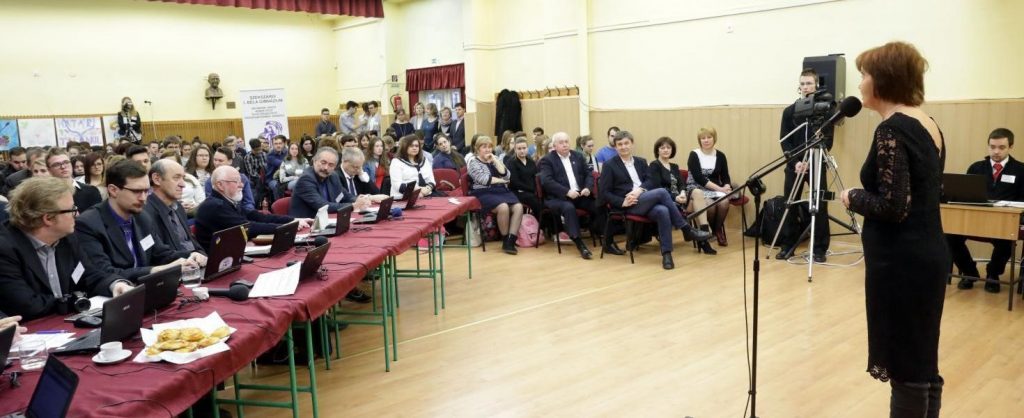
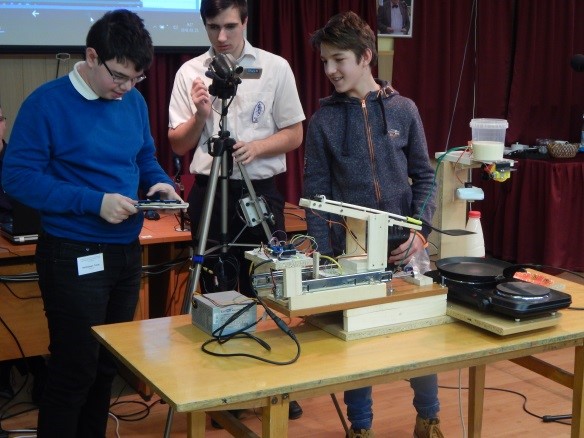
ERASMUS+ LELLE2 – LET’S LEARN HOW TO LEARN! – Innovative learning methods to improve the learning abilities of secondary school students. The international project starts on 1st September 2018 and ends on 31st December 2020. Countries participating in the project: Slovakia, Romania, Estonia, Hungary. The aim of the project is to train the employees in line with the changing requirements of the labour market, to prepare students to meet the more and more serious and difficult to meet challenges they face. The project develops three pillars of learning outcomes (more important during the labour market competition): critical thinking, problem-solving skills and the ability to organize the learning process itself.
The project consists of five main steps (O1-O5). Our secondary grammar school plays a role in all five steps in a smaller or greater proportion. As for the first step (O1) − from September 1st 2018 till the end of January 2019 −, a good practice collection is compiled. In the first phase our grammar school is involved in the preparation, we are involved in the research part of the project: we collect methods to help develop the above-mentioned three key competences through the good practices of the teachers of our secondary grammar school (through individual interviews, sample visits and focus group interviews, etc.).
The second phase (O2) − from the end of January 2019 to the end of July 2019 − is responsible for sharing the curriculum and training the mentoring teachers of the participating countries (March 2019), followed by the training of the secondary grammar school teachers through Internal Training Material (September 2019). The curriculum consists of a general and a subject-specific part. Teachers incorporate methods and techniques to develop learners’ learning abilities into their subjects and everyday teaching practices, developing the three pillars mentioned above.
The third stage (O3) will take place in the following academic year. It is the greatest challenge of our secondary grammar school. It is expected to be fulfilled in the academic year of 2019/2020. In September of the school year, the educated teachers prepare their modified tutorials and learners’ online learning skills are measured using the Pannon University’s test tool (test). As a result of the first three steps, according to the completed tutorials, during the academic year of 2019/2020, the development of the student’s key competences (Step 4 – O4) starts and the output measurement (April 2020) ends at the end of the given academic year.
Taking into account the measurement results and experiences of the fourth step, lessons learned in the fifth step (O5 – January 2020), Pannon University and the participating institutions share their knowledge with non-programmed schools and teachers through the European Gateway. The program ends on 31 December 2020.
In the academic year of 2018/2019, the first and second stages of the project will be implemented. In the second half of the school year, on the 21-22nd March, a meeting takes place in Bratislava to prepare the training of selected mentor teachers (at the end of June or the very beginning of July) who will train other teachers in their own school.
In all five steps, selected teachers regularly report on progress on a monthly basis and attend a skype conference.
